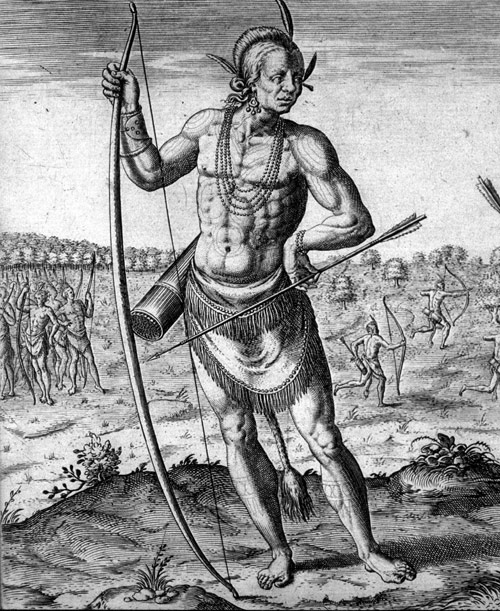POST 1 : THE MYTH OF THE NOBLE/GOOD SAVAGE

The myth of the good savage is the idealization of man in the state of nature. The idea that "the good savage" lives in a paradise on earth before the original sin developed in the eighteenth century, having its foundations in the explorers and conquerors of the Renaissance. The myth of the good savage has allowed contemporary writers to develop a form of social criticism of the aberrations and injustices of society. The most popular adaptation currently is The Brave New World by Aldous Huxley.
- Montaigne discusses the subject in the chapters Cannibals and Coaches of his Essays. Many critics maintain that the author is in favor of indigenous peoples who live quietly in the wild and against Europeans who are only interested in enriching themselves and corrupting innocent people. Montaigne emphasizes the importance of choosing reason in relation to the common voice and introduces the principle of cultural relativism as well as the idea of tolerance.
- In the eighteenth century, the figure of the good savage began to change. In the text Supplement to the Voyage of Bougainville, published in 1772, Denis Diderot expresses a thought that subtly opposes the common voice and causes the fall of the myth, proved with the following century: for him, the "good wild" n 5. There must be judged every man as he is. Although he agrees that Tahitians live in a happy and free way and even if their happiness gives him the opportunity to confirm his theory of the three codes, Diderot declares that nature and the "savages" are neither good nor bad.

Comments
Post a Comment